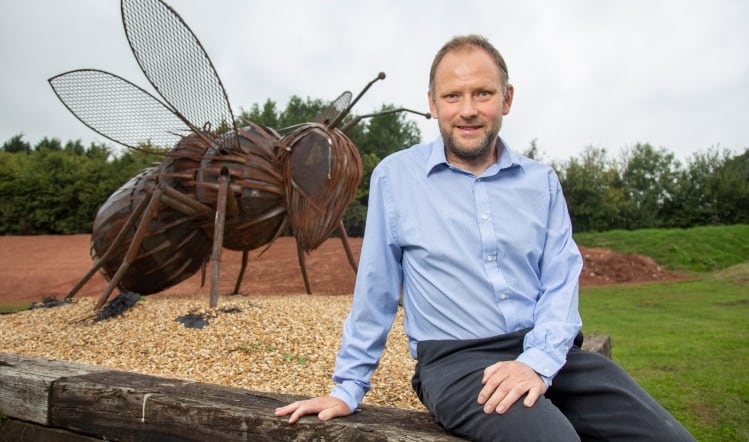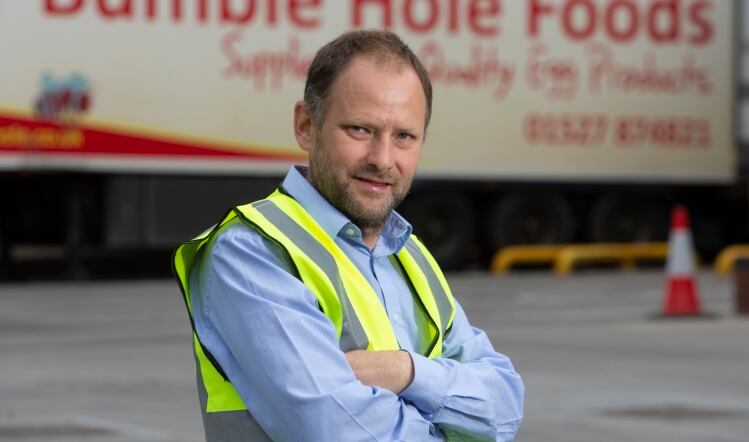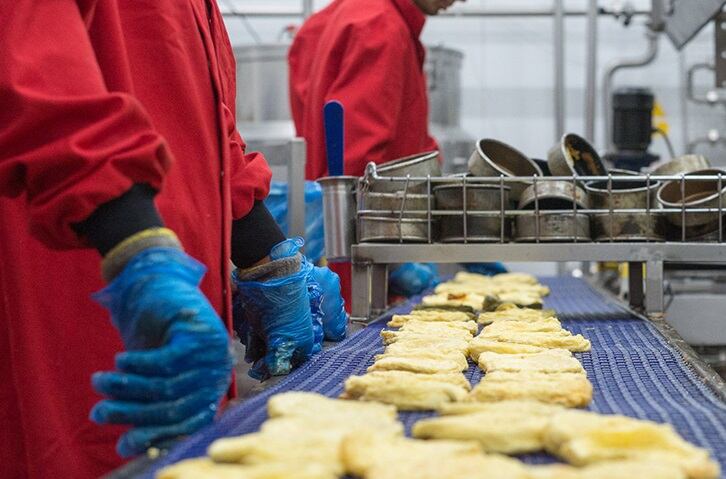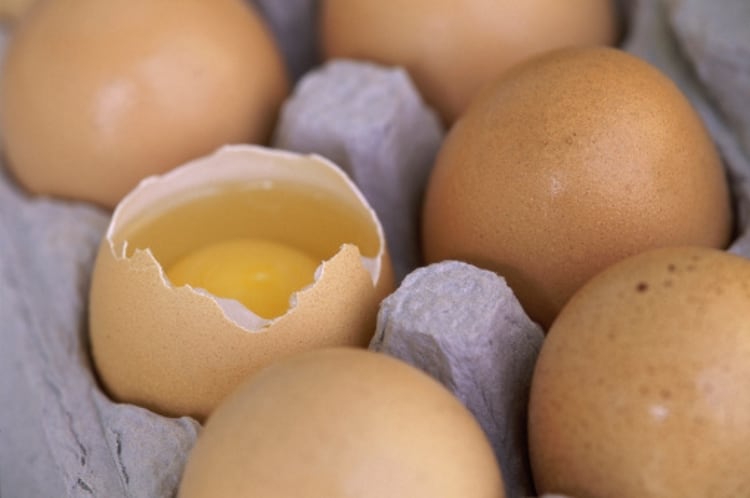At Bumble Hole, we specialise in egg and nothing but egg – processing up to six million eggs a week from our facility on the outskirts of Bromsgrove.
The business was started in 1961 by my grandfather, William, and father, David. First it was a small-holding, before becoming an egg supplier to a number of regional supermarkets in the 1970s and 1980s.
As our customer base grew, we dedicated ourselves solely to processing, developing a line of pasteurised egg products. And with the help of a government grant, we started hard-boiled egg and mayonnaise production in the mid-1990s. Today, we receive eggs from around 200 farms.
I joined the business in 1996, having spent a couple of years working on the south coast after leaving university. Today, I am both owner and commercial director of the business, but my father still likes to have a hand in everything. As we’ve grown over the years, we’ve both learned to delegate more, and I think our roles are now very clearly defined.
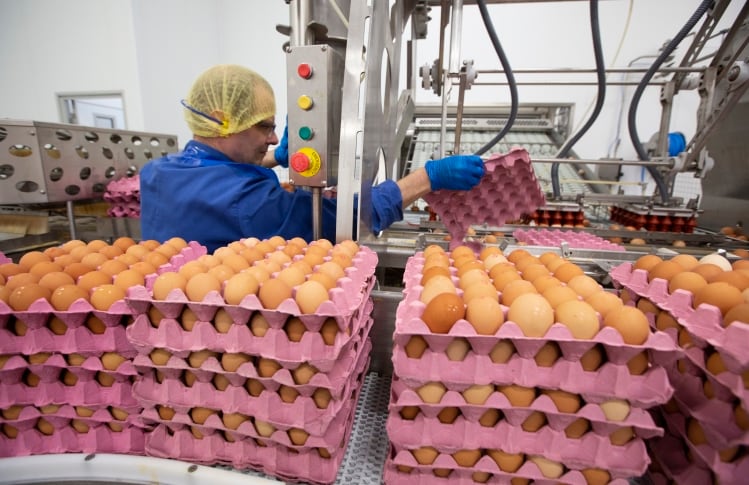
£10m investment in the site
Since 2010, we have invested around £10m into the site, in everything from egg storage to offices to a staff canteen. Our egg-breaking capacity means we can break 250,000 eggs an hour, producing whole egg, whites and yolks, as well as blended egg.
We break 16 hours a day, five days a week, and have a night crew for cleaning. Eggs come in on day one, we process them on the second day, and aim to deliver them on the third.
We don’t process too much on Fridays as, understandably, customers are not keen on losing two days’ shelf-life – so this means Mondays can be incredibly busy. Thankfully, the 35–40 people who work in the production area are committed to putting the hours in to make sure is everything processed. They understand that some of our customers could grind to a standstill if we fail to deliver on time.
Each day, we start with the organic and free range eggs before moving on to cage or intensive. The egg-breaking device has two sections: the top compartment collects the yolk, the lower one the egg white. If the yolk splits, it will fall into the lower section, so we have a camera system in place to reject it and divert it to a balance tank.
We have two pasteurisers, which take the liquid egg from 4°C to 53°C for egg white and to 66°C for yolk – any hotter and it will scramble. The liquid is held for 3.5 minutes before being cooled right down again.
Flexibility
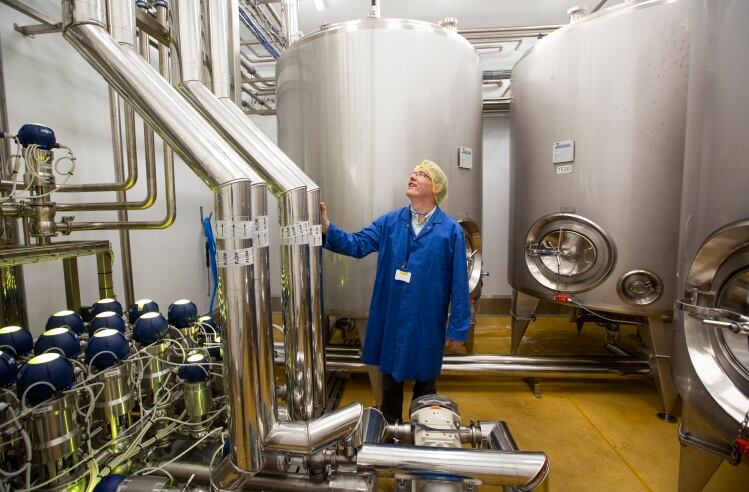
We can pack in a variety of formats, from 5kg pouches up to 0.5t Pallecons. It’s important to offer this flexibility, as many of our customers only require small quantities for glazing.
The UK egg market continues to grow at about 4% a year, with manufacturing and foodservice accounting for almost half the market value, and we believe our place in the market puts us in a good position to capitalise on a number of opportunities.
Currently, around 20% of egg product consumed in the UK is imported. However, a number of food safety incidents around egg production – including last year’s fipronil contamination scare – have made manufacturers, retailers and the public more interested in where their eggs come from.
This is where the British Lion assurance scheme comes in. Lion covers all businesses in the egg supply chain, from the feed mills, to the farms, to us – and there isn’t an assurance scheme in Europe that measures up to it.
One example is with egg pasteurisation. Under the Lion scheme, the heat treatment specifications are very tight, whereas the European equivalents tend to just say the liquid has to be heat-treated, and little more.
Surety of supply
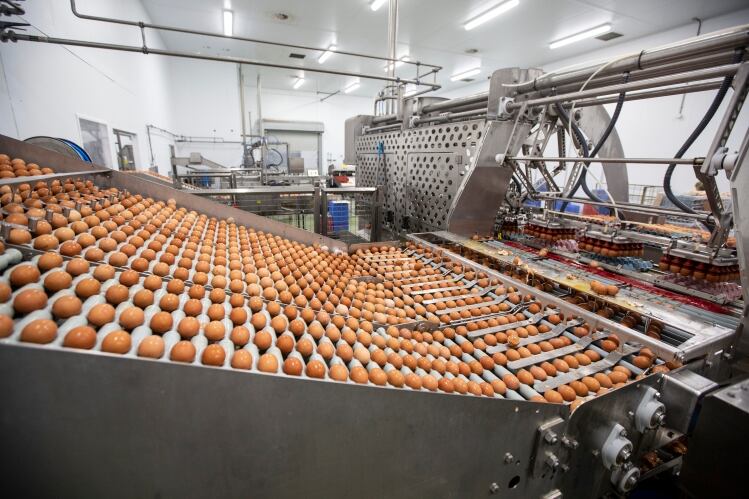
Having Lion-specified eggs is also likely to help with surety of supply post-Brexit. We see leaving the EU as both an opportunity and a threat. On the one hand, the potential for tariffs and border delays wouldn’t be good for imported egg, with its limited shelf-life. On the other, if the UK strikes trade deals with countries where quality standards are lower, it could depress the value of the UK market.
Further opportunities lie in the types of products we can offer. We’re in the process of installing a new £2m hard-boiled egg production facility on-site, on the back of increased interest from customers. The factory will also allow us to make poached and scrambled eggs, and boost our egg mayonnaise production.
We’re looking at creating the sort of instant egg pots you buy in the likes of Starbucks. It’s part of a journey to developing a brand of our own, which may mean we acquire a food business, possibly a bakery. Noble Foods bought desserts maker Gü a few years ago, and there’s no reason why we can’t do something similar.
Another of our aims is to work more directly with farmers, and have longer-term contracts to better guarantee the price and quality of eggs. It’s all part of being a modern food processor that can offer our customers product assurance, consistent quality, competitive prices and efficient supply.
Bumble Hole Foods
Location: 36 Rocky Lane, Bournheath, Bromsgrove, Worcestershire. B61 9HU
Size: 7,430m2 (increasing to 8,360m2 in 2019)
Turnover: £20m
Staff: 75
Main products: Liquid pasteurised egg, peeled hard-boiled egg, egg mayonnaise.
Weekly output: 250t liquid egg, 625,000 hard-boiled eggs, 6t egg mayonnaise.
Hewston: Has a first-class BA in Business Administration from University of Brighton.

